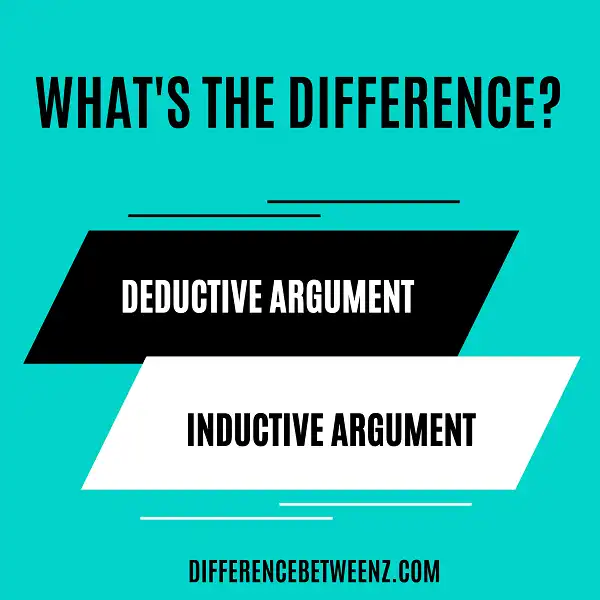Deductive and inductive arguments are two types of logical arguments. Deductive arguments are those that are based on formal logic and use deductive reasoning, while inductive arguments are those that rely on empirical evidence to reach a conclusion. In this post, we’ll take a closer look at the difference between these two types of arguments and explore some examples of each.
What is a Deductive Argument?
A deductive argument is an argument that, if valid, has the following property: the truth of the premises guarantees the truth of the conclusion. In other words, the conclusion of a deductive argument is entailed by its premises, where “entail” means “follows from”. Deductive arguments are supposed to be watertight – if the premises are true, then it is impossible for the conclusion to be false. Deductive arguments can be valid or invalid. A valid deductive argument is an argument whose conclusion must be true provided that its premises are true; an invalid deductive argument is an argument whose conclusion may be false even if its premises are all true. Deductive arguments can also be sound or unsound. A sound deductive argument is a deductive argument that is both valid and has all true premises; an unsound deductive argument is a deductive argument that is either invalid or has one or more false premises.
What is an Inductive Argument?
An inductive argument is an argument in which the premises are meant to be supportive of the conclusion, but they do not guarantee it. Inductive arguments are sometimes called probability arguments or weak arguments. Many times, people will use inductive reasoning unknowingly in their everyday lives. For example, when someone uses the phrase “All swans are white,” they are using induction because this is based on observation (specifically, all of the swans they have seen have been white).
Another example might be if somebody says “I have gotten sick every time I eat at that restaurant,” and then advises others not to eat there. In this case, the person is again using induction because this is based on their past experiences. While induction can be a useful way of reasoning, it is important to remember its limitations. Since inductive arguments do not guarantee their conclusions, they can sometimes be wrong. For example, just because all of the swans someone has seen are white does not mean that all swans are white. It is possible that there could be a black swan out there somewhere.
Difference between Deductive and Inductive Arguments
Deductive and inductive arguments are both methods of reasoning that are used to arrive at a conclusion based on evidence. However, there is an important distinction between the two types of arguments. A deductive argument is one in which the premises are intended to provide conclusive evidence for the conclusion. In other words, if the premises of a deductive argument are true, then the conclusion must be true. On the other hand, an inductive argument is one in which the premises are intended to provide evidence for the conclusion, but they do not guarantee that the conclusion is true. In other words, even if the premises of an inductive argument are true, the conclusion may still be false. Deductive arguments are therefore more certain than inductive arguments, but they are also more difficult to construct. As a result, Deductive and inductive arguments each have their own strengths and weaknesses, and it is important to choose the type of argument that is most appropriate for the situation at hand.
Conclusion
We’ve looked at the difference between deductive and inductive arguments- what are they, how do they work, and when is each appropriate? Now that you understand the basics, you can apply this knowledge to your own essays or writing projects. Remember, a deductive argument starts with a general statement (the conclusion) and uses evidence to support it. An inductive argument starts with specific observations and draws conclusions from them. When in doubt, ask yourself whether your essay or project would be better served by using one type of argument over the other.


